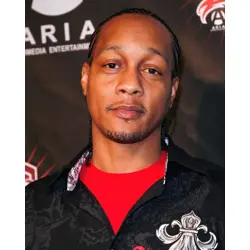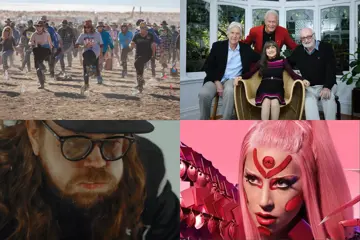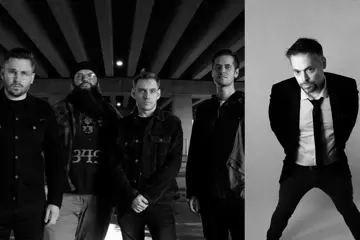 DJ Quik
DJ QuikPLAYING THE BACKFIELD
DJ QUIK EXPLAINS TO CYCLONE HOW HE'S A BEHIND THE SCENES GUY AND HOPES TO INVENT HIS OWN GENRE.
California's DJ Quik, aka David Blake, was active in the early West Coast gangsta rap scene – and survived. The DJ/producer/muso/MC, finally hitting Australia, hopes that playing his music will tell at least some of the story. Blake has wanted to tour for a decade but, alas, visa issues intervened. “I got into a little trouble out here,” he says, regretting a 2006 assault charge. He'd love to visit the Great Barrier Reef – and indulge in extreme sports in the outback. “I'm a dirt bike kinda guy.”
The Compton native is a 'Godfather of G-funk' together with Dr Dre. Blake debuted with 1991's cred album, Quik Is The Name, “a New Jack Swing gangsta record.” But, even more than Dre, Blake has always been versatile, producing everything from hardcore hip hop (he has a joint on Jay-Z's East Coast Black Album) to R&B (Adina Howard) to neo-soul (Tony! Toni! Toné!). Many hold that he's underrated compared to Dre; Blake is however unperturbed, his influence apparent for anyone to discern. “I've always been a producer and a DJ first, so naturally my position is to play the backfield. I'm the behind-the-scenes guy.”
The modest Blake worked in this capacity for Marion “Suge” Knight's controversial Death Row Records, even after Dre's departure. He notably produced Tupac Shakur's Heartz Of Men, off All Eyez On Me. Yet somehow Blake was never embroiled in the bi-coastal beef between Death Row and Puff Daddy's Bad Boy. “Me and Suge were friends years before he got famous as 'the mogul',” Blake recalls. Knight aspired to establish a label to give West Coast acts a platform at a time when the urban industry was based in New York. “His intentions were good,” Blake affirms. Death Row would be “a West Coast powerhouse – like a Def Jam or whatever.” Blake might have signed but he was on Profile Records – ultimately a good thing. “I'd probably be already dead with Tupac...” Things at Death Row did get out of hand. “Sometimes it was really fun and then sometimes it got a little scary.” Blake remembers “unsavoury-type of people” at the label who'd “bring the streets into the industry... It just became generally a little bit un-fun. But I don't regret any of it – it was all a learning experience.”
Blake subsequently liaised with Dre's rival Aftermath Entertainment, notably producing Truth Hurts' R&B hit, Addictive, featuring Rakim. He still 'hangs out' with Dre, but laughs off reports that he's involved in the latter's mythic upcoming Detox opus. “He doesn't need that!” He'll only tell the über-producer if a track would work on the dancefloor or not – and offer “support”. “Dre invented this hip hop economy that we have on the West Coast; he's the forefather of it. So, in my opinion, I kind of owe it to him because he's a part of my success.”
Don't miss a beat with our FREE daily newsletter
Today Blake is on a roll. He contributed to Snoop Dogg's 2008 album, Ego Trippin', as a member of the QDT studio triumvirate alongside the doggfather and Teddy Riley, plus he lately released The Book Of David on his own label Mad Science. Blake is now returning to his roots, making mixtapes, with “ghetto music” from the West, East and South. And he plans a concept album, Born And Raised In Compton (so named for an early hit), with the likes of The Game rapping over his “seriously funky club music”. Indeed, Blake, who, disillusioned with the business, once contemplated retirement, is feeling sanguine, maybe for the first time. “Hopefully, I can invent my own music genre now.”















